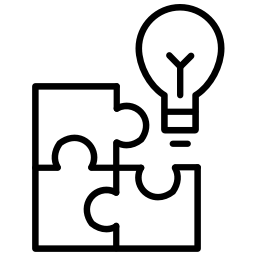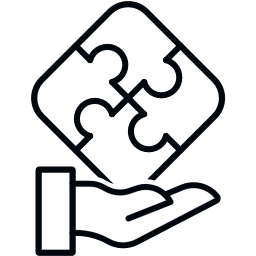YOU ARE VIEWING A DEMO REPORT
Beth Person

Toolkit: Improving My Learning and Grades
Law School Transparency
Introduction 00
Back to Table of ContentsThriving in learning environments, whether at school or new on the job, requires self-awareness and an effort to change. This report can help you in that development process.
Your personalized report is split into two sections. The first section includes chapters that will help you think through your classroom engagement and studying. The second section includes chapters aimed at those who teach you, but still offers insights for you to utilize.
Student Insights: Putting yourself in certain environments or engaging in particular ways can help you improve school performance and educational attainment.
Staying Engaged at School: Becoming more self-aware can help students stay more engaged at school.
School Challenges and Tips: Understanding your preferred learning environment can help you build healthy learning spaces or navigate non-optimal ones.
School Cautions: Insight into the parts of your personality that, if not managed, may cause problems in learning.
Making the Most of Study Time: Quick tips and advice for studying more effectively.
Keys to Better Learning: Identify and leverage your keys to better learning outcomes.
Learning with Cognitive Preferences: Insight into instructional approaches to teaching you based on how you are energized and take in information.
Tips for Teaching Me: Looks at how you take in information to inform how you can be better taught.
Cautions for Teaching Me: Looks at possible personality tendencies and preferences, which could cause educational challenges, and suggests how to consciously optimize each aspect for your success.
Personal Connection I Prefer: Insight into your communication preferences so that you can feel respected and understood, which will help assist your learning.
Motivating Words: Words that can create learning environments where you can thrive.
01 Student Insights
Back to Table of ContentsKey insight for students at school
As a student ...
- I enjoy learning that is thought-provoking and challenging, where exploratory digressions are a welcome break from routine.
- An option to extend my studies if I wish is helpful as I can be frustrated if my learning is restricted.
- The teachers must earn my respect by their expertise.
PLEASE NOTE!!! - The learning environment described suggests the optimal situation. It does not mean that Beth cannot learn in anything other than this environment. It describes the circumstances in which Beth will be most energized, motivated and supported to learn.
We can all learn in many different ways, sometimes we learn more when we are challenged by a different style of learning. However, if our preferred style is unavailable most of the time our learning will be limited.
 Independent As A Student:
Independent As A Student:
- Thinks for a while before answering
- Prefers to learn by reading and listening
- Finds a noisy classrooms very distracting
- Likes working alone or with one other person
- Likes to understand
 Imaginative As A Student:
Imaginative As A Student:
- Wants freedom to explore what inspires them
- Enjoys creative projects
- Would rather imagine than observe
- Likes to know the big picture first
- Wants originality of work to be valued
 Questioning As A Student:
Questioning As A Student:
- Likes to be challenged
- Enjoys questioning
- Would rather be concise
- Likes to know the point of the lesson
- Wants to be respected by the teacher
 Curious As A Student:
Curious As A Student:
- Like teachers who are spontaneous
- Energy arrives just in time to hand work in
- Likes distractions from the routine
- Likes to work on lots of projects at once
- Does best work when under pressure of a deadline
02 Staying Engaged at School
Back to Table of ContentsBecoming more self-aware can help students stay more engaged at school.
Learning Environment
- Gravitate toward faculty members and fellow students based on their competence.
- Want her work to be evaluated in terms of objective standards.
- Perform better in courses with a strong foundation in logic.
- Structure her response to another person’s ideas around revealing the flaws in that person’s position.
Growth Opportunities to Help Beth Shine
- Stops to consider people’s feelings and individual circumstances when evaluating the soundness of ideas.
- Tries putting herself in the other person’s shoes to increase her understanding of that person’s point of view.
- Stretches her natural style to include components that are not as practiced to increase her competence and make her better able to appreciate a variety of competencies in others.
Applying Engagement Styles to Help Beth Get Unstuck
Beth's Engagement Style:
Refine for Perfection
Advantages at School
Quietly fixing things
Refine for Perfection
Pitfalls at School
Lack of decision
Activity to improve Beth’s school work
Beth risks putting off taking action and can get stuck continually fine-tuning her work from a sense that it must be perfect. This can threaten her success in school.Activity to improve Beth’s school work
- From the list below choose a strategy based on effective use of the other three Engagements Styles.
- Think about how this strategy could help you limit the time spent on fine-tuning your work and instead help you begin work even without complete information.
- Craft a couple of sentences where you detail what you might do differently and make a list of the potential advantages of varying your approach.
- Carefully UnderstandMaking a plan that forces me to get started and then keeps me on track even when I’m not sure about the perfect approach
- Dynamically ExploreSharing a draft version of my ideas with trusted others to get feedback
- Organize & DirectFocusing on the outcomes I want to achieve as I sort through my options
Original work by: Elizabeth Hirsh Katherine Hirsh © Step Research Corporation
03 School Challenges and Tips
Back to Table of ContentsSchool Challenges and Tips
People do not learn or take in information all in the same way. Often we assume that the method we use for taking in information and controlling our memory, or our ability to concentrate, is identical to everyone else’s. We study with friends, family members or fellow classmates, however our preferred method of taking in information is often vastly different than that of our study partners or family members. Our strengths we have developed are an amazing combination of our environment, our temperament, our nutrition and the gifts we were given at birth. Becoming aware of both our gifts and our challenges gives us the ability to create a roadmap for learning customized to our individual needs.
In Class
- Once engaged Beth can be a relentless learner with a piercing focus.
- She may be pre-occupied with her own internal thoughts and ideas.
- She is respectful of the learning environment when she is comfortable that she is in competent hands.
- An internal drive to understand is a great motivator.
Independent Study
- This is energising and allows Beth to tap into her gifts.
- When by herself she can get lost in her own world of ideas and innovations which may be productive but may also be off task.
- Caught up in her intellectual puzzling Beth may leave what actually needs to be done to the last minute or beyond.
Beth's Learning Needs
 Independent Student Learning Needs:
Independent Student Learning Needs:
- Time to think before responding
- Opportunities to work independently
- A pace that allows time to rehearse internally
- Appreciation for their reflective approach
- Time for in-depth study in areas of personal interest
 Imaginative Student Learning Needs:
Imaginative Student Learning Needs:
- Start with the big picture and follow with specifics
- To be valued for thinking outside the box
- Have the freedom to explore ideas independently
- Be accepted for unconventional ideas and practices
- Opportunities to innovate
 Questioning Student Learning Needs:
Questioning Student Learning Needs:
- Motivated by logic
- Experience competence and success
- Are respected for skills, abilities and gifts
- Evidence of progress to be communicated
- Criticism is constructive and well documented
 Curious Student Learning Needs:
Curious Student Learning Needs:
- Choice
- Most comfortable with an open, casual atmosphere
- Encouragement to explore areas of personal interest
- An environment where risk taking is respected
- Opportunities to learn through play and novelty
Beth's Learning Tips
 Independent Student Learning Tips:
Independent Student Learning Tips:
- Plan for having personal space in your day
- Write down questions you want to ask
- Find a way to ask questions privately
- Avoid time pressures where possible
- Recognize when participation is important
 Imaginative Student Learning Tips:
Imaginative Student Learning Tips:
- Follow your hunches and inspirations, they are a gift
- It's OK to go off track but keep the task in mind
- Highlight the facts, they may be important
- Combine pictures and words when note taking
- Realise that some great ideas may not be practical
 Questioning Student Learning Tips:
Questioning Student Learning Tips:
- It's OK to admit you don't understand; keep asking questions until you do
- Critiquing comes naturally, remember to find the positives as well as the negatives
- Find the right person to talk to when things seem unfair
- Reflect on negative feedback before reacting to it
 Curious Student Learning Tips:
Curious Student Learning Tips:
- Enjoy having an inquiring mind
- Block off time before a deadline and keep it clear
- Manage expectations on time when working in groups
- It's OK to go off task but know when to get back on
- Use natural bursts of mental or physical energy to study and then take a break
Original work by: Sue Blair Mary Anne Sutherland © Step Research Corporation
04 School Cautions
Back to Table of ContentsSchool cautions
Part of our human condition is that we have strengths in some areas and challenges in others. Knowing this about yourself can help you to become comfortable with yourself as a student, avoid potential downfalls and prepare for compulsory work that may not suit your strengths or preferences. Becoming an active participant in your own education will help you to retain, discover or rediscover your confidence, dignity and passion as a student.
Cautions
- Beth typically has a strong need for privacy, an intense interest in just a few areas, and a dislike of small talk, which may make Beth appear distant, anti-social, or confusing to her peers.
- She may be impatient with those who are less capable.
- Beth may walk away from situations she sees as unjust, unfair, illogical, or not relevant to her.
- If pushed Beth may also challenge authority for the same reasons.
- Managing time, deadlines and completion are often problematic.
- Concentrating on theory she may miss the important details.
- Beth can appear compliant whilst ignoring what she sees as stupid rules.
 Independent Student Cautions:
Independent Student Cautions:
- Speaking up when just listening is preferred
- Focusing on the task when distracted by thought
- Self-esteem issues if extraversion is more valued
- Sharing thoughts which are only half-formed
- Taking the risk to actively participate
 Imaginative Student Cautions:
Imaginative Student Cautions:
- Being on task when inspirations are more compelling
- Having the patience to follow a course sequentially
- The practicalities of life and learning
- Misinterpretations due to jumping to conclusions
- Harnessing bursts of creative
 Questioning Student Cautions:
Questioning Student Cautions:
- Resilience if achievement is below personal expectation or if something seems pointless
- Asking for help
- Expanding answers to gain maximum points
- Knowing that mistakes are OK if you learn from them
- Losing an argument with grace and dignity
 Curious Student Cautions:
Curious Student Cautions:
- Being realistic about which deadlines can be extended
- Resisting internal or external distractions when bored
- Accurately assessing how long a task will take
- Having patience with the needs of others to conform
- Knowing when to stop gathering information and turn creativity to productivity
Original work by: Sue Blair Mary Anne Sutherland © Step Research Corporation
05 Making the Most of Study Time
Back to Table of ContentsQuick tips and advice for studying more effectively
Making the Most of Study Time: Time and Energy Overview
- Understand her personal time clock and attempt to study when she is most alert and creative.
- Learn about her stress triggers and explore different activities to see which help to reduce stress.
- Honor her physical needs while studying by moving, stretching, eating, sleeping, and taking breaks when needed.
Making the Most of Study Time: Maintaining Energy
- Make an extra effort to find a quiet spot on her own, or with one or two fellow students.
- Write out her ideas, sometimes just having to organize her thoughts in writing can help her to understand the material.
- Take breaks to be alone to reflect and recharge especially when she has had a lot of interaction time with others.
Making the Most of Study Time: Improving Understanding
- Ask herself what are the interesting themes related to the material, and when stuck, circle back to those patterns to re-focus her efforts.
- Look for or ask for theories to explain why this material is important in order to help her to better understand it.
- Draw on her imagination to explore if and how what is being taught corresponds with future trends.
Original work by: Elizabeth Hirsh Katherine Hirsh © Step Research Corporation
06 Keys To Better Learning
Back to Table of ContentsHelping a student identify and leverage their keys to better learning
Identifying Keys to Better Learning
- Gain credibility and trust by being flexible and allowing her time to reflect on her own.
- Offer guidance in a logical and objective manner.
- Give her the underlying significance of what you are suggesting and emphasize how considering this can expand her perspective and open up possibilities to think creatively.
- Express information objectively so Beth will best hear you.
- Don’t be intimidated if Beth is skeptical about the concepts you provide, this is how she learns best. Act as a neutral sounding board so that she can feel comfortable being herself around you – what she wants most is to grasp the logical basis of ideas.
- Participating in group discussions and doing oral presentations instead of independent study and written reports.
- Hearing about details and specifics first instead of listening to topics described in big picture terms.
- Building social connections and people skills instead of running statistics or analyzing data.
- Setting benchmarks and scheduling appointments to monitor understanding and progress instead of free-flowing course goals and ad-hoc get-togethers to strengthen learning.
- Tell Beth that when people are feeling confused on any topic, it can affect their experience of school even if their problems aren’t directly related to their coursework. At such times, people tend to seek clarity in different ways.
- To help Beth gain perspective, have a discussion with her where you support her in drawing on her natural style of reasoning by asking "What is the most logical and objectively correct thing to do?"
- Reassure Beth that the point is not to have the perfect answer, but instead to free up her thinking and start a conversation about options.
- If Beth is really stuck, you may want to try asking her this stretch question designed to shake up her typical approach to unraveling confusing or difficult issues: "What is the most immediately enjoyable thing to do?"
- Help Beth get the most out of the stretch question above (especially if she has trouble with it) by explaining that “This question is actually one that some people – people quite different from you – would naturally ask themselves, so it’s totally normal that it might seem foreign to you, or, for you to feel that it is not even a valid question to consider. So, while it probably feels a bit awkward, being willing to think about this question and trying to look at things from another’s vantage point, might just turn out to be a useful and important way expand your thinking.”
- Use this as an opportunity to encourage Beth to stay curious about the methods others use to learn and grow when faced with something confusing or difficult. Even when these methods don’t match hers, she may be surprised at what she discovers, even if all she discovers is how not to do things.
Practice new skills: Homework/In-Session Activity
- Ask Beth to look at this list of things that could support her learning and pick out TWO items.
- Have Beth brainstorm possible ways of adding these to her routine or increasing their frequency if she is already doing them. This can be homework or you can work on it together in the session.
- Suggest Beth reflect on how these could improve her learning experience. Ask Beth:
- What helps you stay positive and motivated about school? How might some of these strategies increase those feelings?
- What helps you to cope when things feel tough or overwhelming? How might some of these techniques improve your coping skills yet further?
LIST OF ITEMS TO GIVE Beth – She picks TWO
Beth Person
Enhancing Your Learning Experience

Instructions For Using This
- Look at this list of things that could support your learning and pick out TWO items.
- Brainstorm possible ways of adding these to your routine or increasing their frequency if you are already doing them. It is okay to have someone with work you on this part.
- Reflect on how these could improve your learning experience. Questions to ask yourself:
- What helps you stay positive and motivated about school? How might some of these strategies increase those feelings?
- What helps you to cope when things feel tough or overwhelming? How might some of these techniques improve your coping skills yet further?
I can enhance my educational experience by:
- Having unstructured free periods where spontaneity is the order of the day.
- Taking courses that highlight cutting edge theory to keep my enthusiasm stoked.
- Finding time and space for contemplation on a regular basis.
- Being in the company of respected and trusted others whose competence and intelligence I admire.
- Prioritizing fun, laughter and taking care of my physical needs as an important component in maintaining academic excellence.
Original work by: Elizabeth Hirsh Katherine Hirsh © Step Research Corporation
07 Learning with Cognitive Preferences
Back to Table of ContentsFour instruction approaches based on cognitive processing preferences
Preferred Learning Approaches
More Likely Beth
 Let Me Lead As I Learn
Let Me Lead As I Learn
Question & Connection
- Start with the big picture, not the details
- Let me dream big without penalties
- Let me find a new way to do it
- Let me experiment
- Give me choices
- Keep changing what we do
- Let me teach or tell someone what I’ve learned
- Let me be in charge of something
- Let me talk or work in groups
- Let me come up with my own ideas
Less Likely Beth
 Let Me Do Something
Let Me Do Something
Experience & Movement
- Start with hands-on activities
- Give me steps to follow
- Build on what I already know
- Tell me why I’m learning something
- Give me chances to talk, move, and work in groups
- Set a realistic deadline
- Give me examples
- Provide clear expectations
- Go light on theory
- Let me apply it immediately
 Let Me Follow My Own Lead
Let Me Follow My Own Lead
Vision & Interpretation
- Let me delve deep into things that interest me
- Avoid repetition and routine
- Let me figure out for myself how to do things
- Give me choices
- Listen to my ideas
- Let me learn independently
- Let me start with my imagination
- Help me bring what I envision into reality
- Give free rein to my creativity and curiosity
- Provide references for me to build my own knowledge base
Least Likely Beth
 Let Me Know What To Do
Let Me Know What To Do
Structure & Certainty
- Set clear expectations and goals
- Show me examples
- Provide the steps in writing
- Answer my questions as I have them
- Give me time to think
- Let me work with and memorize facts
- Avoid too many surprises
- Build on what I already know
- Let me know along the way if I’m doing things right
- Connect content with past efforts and experience
08 Tips for Teaching Me
Back to Table of ContentsHow best to teach this student
To acknowledge individual differences in education is not a luxury; it is a necessity. Boredom is not just annoying; it may dramatically affect a student’s brain. So, often learners are not incapable, but rather their natural styles of learning are in direct opposition to the structure of activity. Since experience impacts our mind, we can literally improve or deteriorate depending on how we value the learning and stimulation of our minds. Our natural styles guide how our mind prefers to take in information.
Teaching Beth Tips
 Teaching Independent Students:
Teaching Independent Students:
- Private feedback is most effective
- Expect a 'think first, do later' approach
- Give plenty of time for mental preparation
- Encourage expression of ideas in writing
- Ask in-depth questions and expect a pause before responding
 Teaching Imaginative Students:
Teaching Imaginative Students:
- Set boundaries but allow for some deviation
- Advocate proof reading to minimise inaccuracies
- Find multiple ways to teach the same thing
- Encourage expression in a variety of forms
- Provide non-sequential learning options
 Teaching Questioning Students:
Teaching Questioning Students:
- Treat learners of all ages as equal partners
- Allow learners to critique honestly with no penalty
- Offer advice using logical reasoning
- Give recognition on completion of the task, not before
- Expect debate and argument just for the fun of it
 Teaching Curious Students:
Teaching Curious Students:
- Create opportunities for personalised exploration
- Praise an ability to produce results under pressure
- Have multiple small deadlines
- Expect learning to progress in bursts and lulls
- Avoid too much repetition
Original work by: Sue Blair Mary Anne Sutherland © Step Research Corporation
09 Cautions For Teaching Me
Back to Table of ContentsHow best to teach this student
Teaching Beth Cautions
 Independent Student Cautions:
Independent Student Cautions:
- Introversion does not relate to shyness
- Passive facial expressions can be hard to 'read'
- A quiet manner may lead to underestimating ability or be misinterpreted as boredom
- May have difficulty translating thoughts into words
- Could over-think questions, assignments or projects
 Imaginative Student Cautions:
Imaginative Student Cautions:
- Learners can be upset when work produced fails to meet their vision or dream
- They may display unexpected ability with complex issues and difficulty with learning the basics
- Once a concept is understood they often move on, despite the fact the work may not be finished
 Questioning Student Cautions:
Questioning Student Cautions:
- Learners may tune out if they don't understand the reason for the learning
- Eliminate unnecessary detail that doesn't enable better grades - get to the point quickly
- Learners may not show how they feel but don't assume they are not feeling anything
 Curious Student Cautions:
Curious Student Cautions:
- The drive to experience trumps the need to complete
- The best work is done when pressure-prompted
- Teach timing rather than lecture on responsibility
- Aim to provide a flexible educational experience
- Many things may get left or lost; try not to sweat the small stuff
Original work by: Sue Blair Mary Anne Sutherland © Step Research Corporation
010 Personal Connection I Prefer
Back to Table of ContentsHow best to reach this student
Our choices and style preferences are at the core of what it means to be an individual. To be seen, really seen, for who we are, to be known for both our gifts and our challenges, connects us to others. This vulnerable, authentic self expression encourages the learner to bravely take the risks necessary to explore unknown territory and tackle new challenges. The learner may then tackle new or uncharted territory. As the saying goes, “To successfully teach me is first to see me.”
Personal Connection With Teachers
- It is easy to assume that Beth is self-sufficient, trusting in her own ability. This is not always the case. She does need to know that she is well respected for her intellect.
- Having a teacher who clearly demonstrates expertise from the outset is very important. She will opt out if this is not the case.
- Once a connection is established Beth prefers to be left to her own devices. Check on her when necessary. No fussing.
- If Beth does share personal information this is a clear sign you are highly valued and you have her full attention.
- She likes to be considered as equal partners in her own learning. Authority figures are listened to for their integrity not their rank.
- Be aware that Beth can be very reluctant to ask for help.
Original work by: Sue Blair Mary Anne Sutherland © Step Research Corporation
011 Motivating Words
Back to Table of ContentsDifferent groups of motivating words that trigger the best environment for taking in information.
Preferred Motivated Words
Based on preferences for taking in information.
More Likely Beth
 Question & Connection
Question & Connection
- Create
- discover
- pretend
- design
- develop
- discuss
- synthesize
- collaborate
- find a new…
- generate
- visualize
- evaluate
- problem-solve
- experiment
- invent
- hypothesize
Less Likely Beth
 Experience & Movement
Experience & Movement
- Build
- show
- assemble
- tell
- discover
- make
- demonstrate
- figure out
- touch
- design
- suggest
- solve
- choose
- construct
- examine
- explore
- discuss
 Vision & Interpretation
Vision & Interpretation
- Read
- think
- consider
- design
- evaluate
- clarify
- speculate
- dream
- envision
- paraphrase
- brainstorm
- create
- elaborate
- illustrate
- write
- reflect
- chew on
- make connections
- compare
- contrast
- compose
Least Likely Beth
 Structure & Certainty
Structure & Certainty
- Read
- identify
- list
- label
- name
- notice
- observe
- apply
- analyze
- graph
- examine
- work
- prepare
- do
- organize
- complete
- answer
- listen